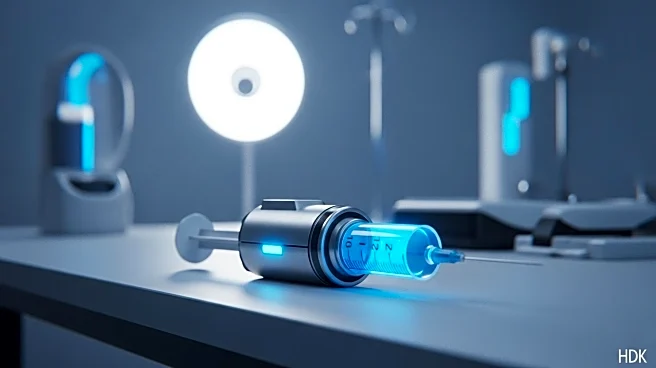What is the story about?
What's Happening?
Merck has received FDA approval for Keytruda QLEX, a subcutaneous version of its cancer therapy Keytruda, which is approved for most solid tumor indications. This approval comes as Merck faces the loss of exclusivity for Keytruda, with patent protections expiring in 2028. The subcutaneous version offers convenience advantages, allowing administration in various healthcare settings and reducing infusion time compared to the intravenous form. The pivotal study showed similar efficacy between the two formulations, with a 45% overall response rate in non-small cell lung cancer patients treated with Keytruda QLEX.
Why It's Important?
The approval of Keytruda QLEX is a strategic move by Merck to maintain its market share as Keytruda's patent expiration approaches. The subcutaneous version's convenience may help Merck compete against biosimilars and retain its position in the oncology market. This development highlights the importance of lifecycle management in the pharmaceutical industry, as companies seek innovative ways to extend the commercial viability of their products.
What's Next?
Merck plans to launch Keytruda QLEX in the U.S. later this month, priced at parity with the intravenous version. The company will continue to focus on lifecycle management strategies to mitigate the impact of patent expirations. Healthcare providers may begin offering the subcutaneous version to patients, potentially influencing treatment preferences and practices.















